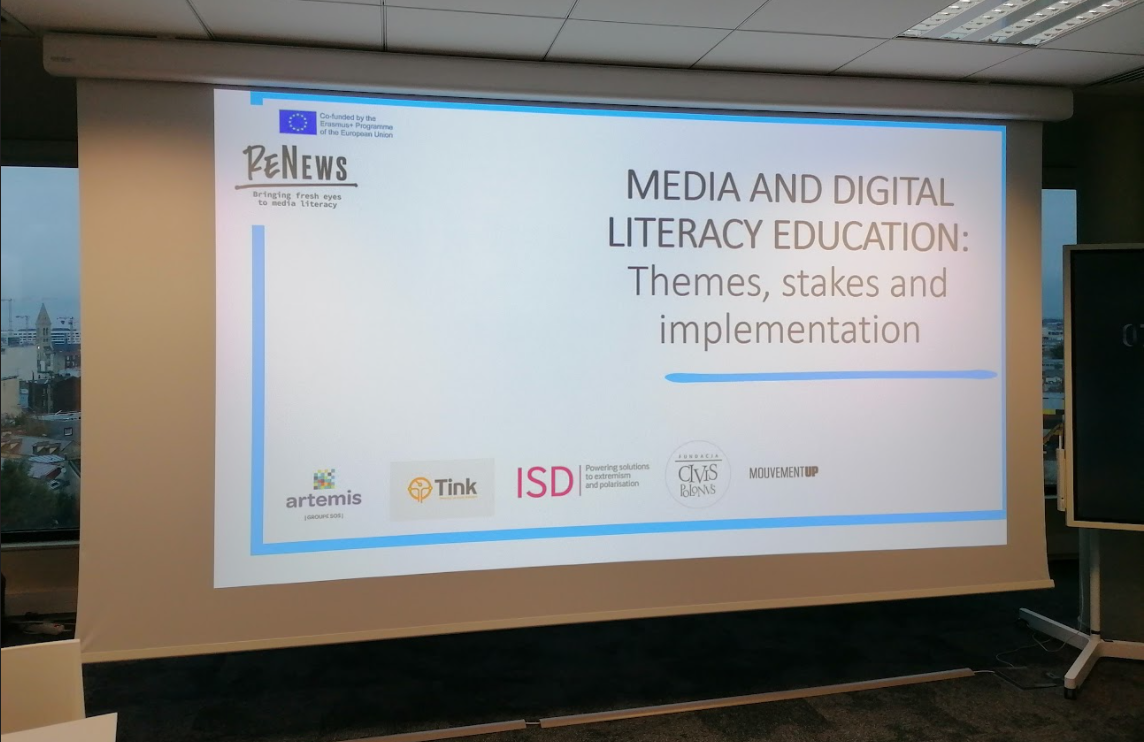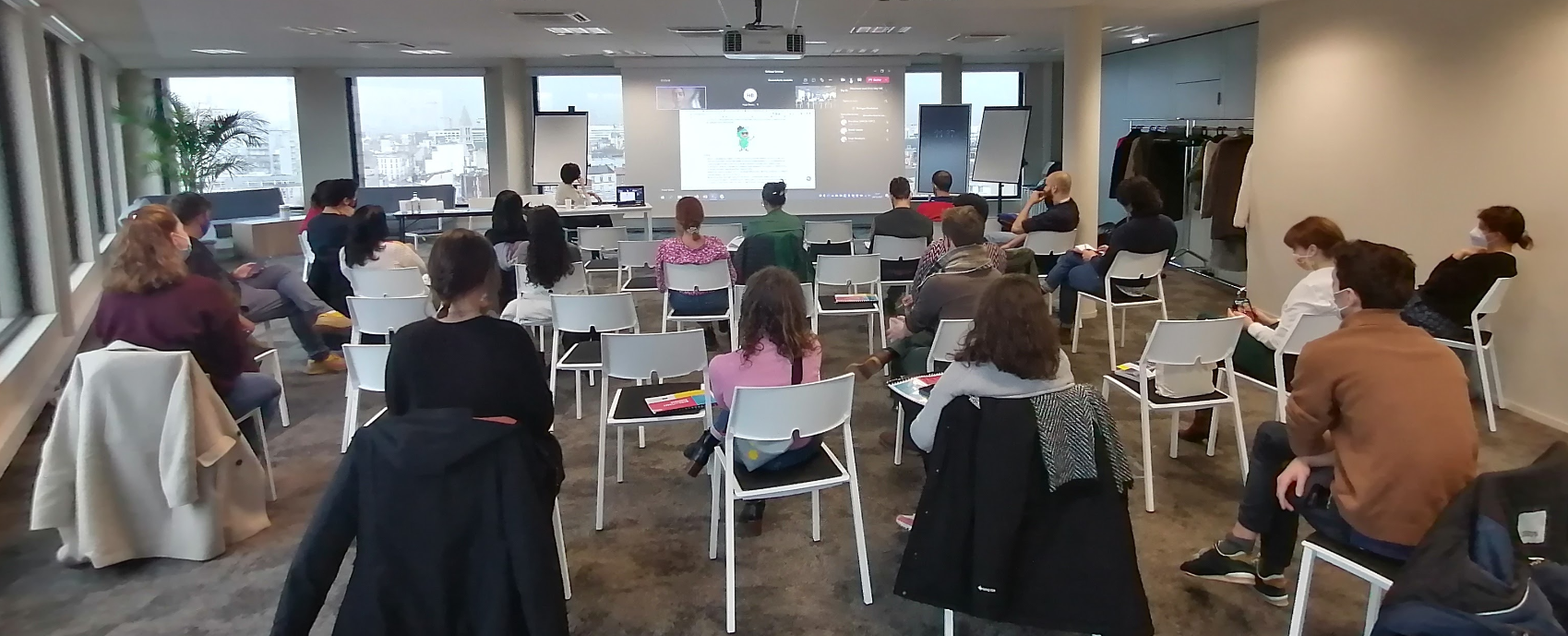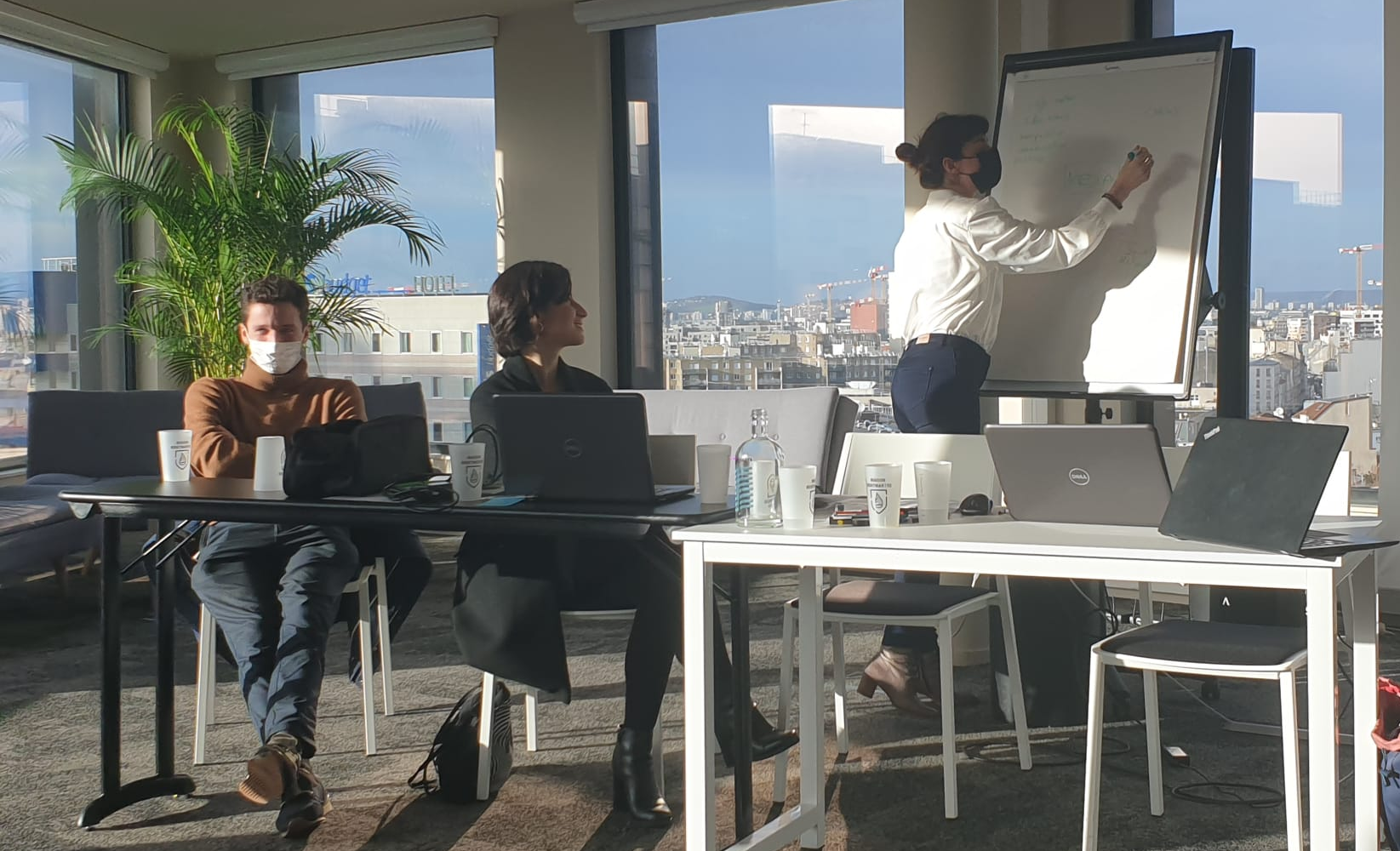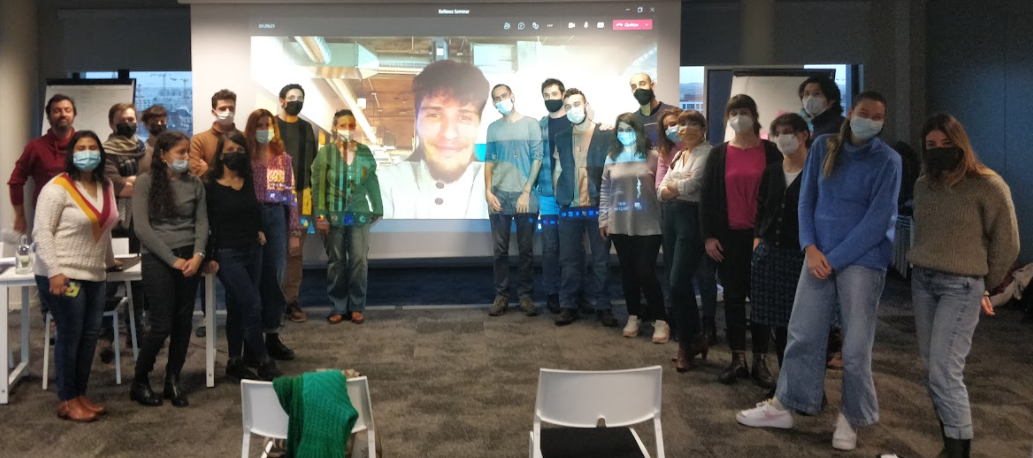
On the 4th december, it was celebrated in Paris the seminar Bringing fresh eyes to Media Literacy, presented and organised by ReNews. The ReNews Project’s main objective is to train more than 500 students from 14 to 18, teachers and librarians in Media Literacy. AulaMèdia was there, in Paris, and it was a great experience.
The ReNews team is made up of members of GroupeSOS Solidarités and Mouvement Up, from France, The Institute for Strategic Dialogue (ISD) from United Kingdom, Civis Polonus from Poland and TINK from Turkey.
ReNews is a transnational project funded by the Erasmus and a Programme of the European Union, aiming at improving Media Literacy Education (MLE) skills. ReNews works to build a new generation of “cyber-citizens”, reducing the vulnerability to hateful content and disinformation online.
The Journey took place in The Hotel Maison de Montmartre in Paris, and it was a dynamic event presented and organised by Ana Elvira García López, European Projects Coordinator at GroupesSOS Solidarités – ARTEMIS and Thibault Rabouin, member of GroupeSOS and a specialist in Geopolitics and International Relations.

During the introduction there were presented the representative persons of the different organisations who participate in the transnational project, and Hugo Besançon , from the ISD who addresses to us online to speak and introduce the issue of the polarisation of the speech and the extremism in social networks.The introduction was based in the idea of empower the citizens giving them tools to acquire a critical way of thinking, beyond the confusion of misinformation. One of the clues was the fact that there are risks and benefits in the use of digital media. The governments aren’t on the regulation of the internet, because of the difficult task that it should be, but every day they’re most interested in promote programmes to help the teachers to educate citizens with abilities to make a successful and responsible use of the internet, and also keep safe their own privacity and the others one.
Then, once we have justify the need of this and other programmes to teach the young ones to have a responsible and ethical use of the social networks, we can go over one of the most importants points of the day: how to face the spreading of the hate speech among the very young people, and not so young, through the media and the social networks. The responsible for this mission is Khaild Aoutail, UNESCO’s expert in this issue and the author of the guide Décode la h@ine! jette la violence! In Europe, one of the main problems is the young people’s radicalisation due to an uncontrolled spread of biased ideas and hate speeches that, in the internet, they move around uncontrolled.
It is needed to provide filters to help students to identify which rumours are real and which aren’t. Youths have to be able to distinguish what is behind these kinds of ideas related to politics, economics and cultural interests. In order to reach a real democracy, the governments must be genuinely interested and determined to assist students with a real critical media literacy,even though it means to have critical citizens with the government institutions.
After the break, we had the opportunity to know the work of Daniel Jasmin and Jordy Nijenhuis, who tried to refute the polarized speech of the media, the fact of present a “they against us” reality tends to present a partial vision of the conflict. Dare to be grey is a dutch blog to question, with objective information, the media speech or the political groups ideas with a broken view of the reality to manage the public opinion in a direction or another.

After a delicious meal with prosciutto, a delicious confit of duck and an apple cake for dessert, where we could meet, talk and discuss about the subjects derived of the seminar, we attended the workshops in the afternoon.
Laetitia Moréni, from Mouvement Up, journalist and teachers coach in Media Literacy presented a practical workshop about how to distinguish fake news and rumours of the real news. She was the person in charge to do that, accompanied by Joachim Charlot, former in Media Literacy for ASSFAM (GroupeSOS) who, in an enjoyable and plenty of specific examples way, showed us some tools and directions for teachers to work on the contents of the media. His point of view was based in the fact that the media has got a high credibility per se and we have to learn to question that.
We have the duty to provide tools the citizens of the XXIst century and help them to be critical people, to be able to distinguish what is false from what is true, and to know the hidden interests in the information and the contents.
Helena Soriano
AulaMèdia

ReNews
GroupeSOS, is a french organisation skilled in the prevention the spread of the hate speech and the radicalisation on the media.
Mouvement Up, is an enterprise specialised in Media literacy education and social networks.
L’ISD, from the United Kingdom in an independent non profit organization for human rights preservation and it fights against the wave of polarisation, extremism and misinformation in the global societies.
Civis Polonus is a polish foundation for the civic education of the young ones.
And TINK is a turkish Secondary Education Institution specialized in Technology and concerned in Media Literacy challenges emerged in Europe nowadays.
